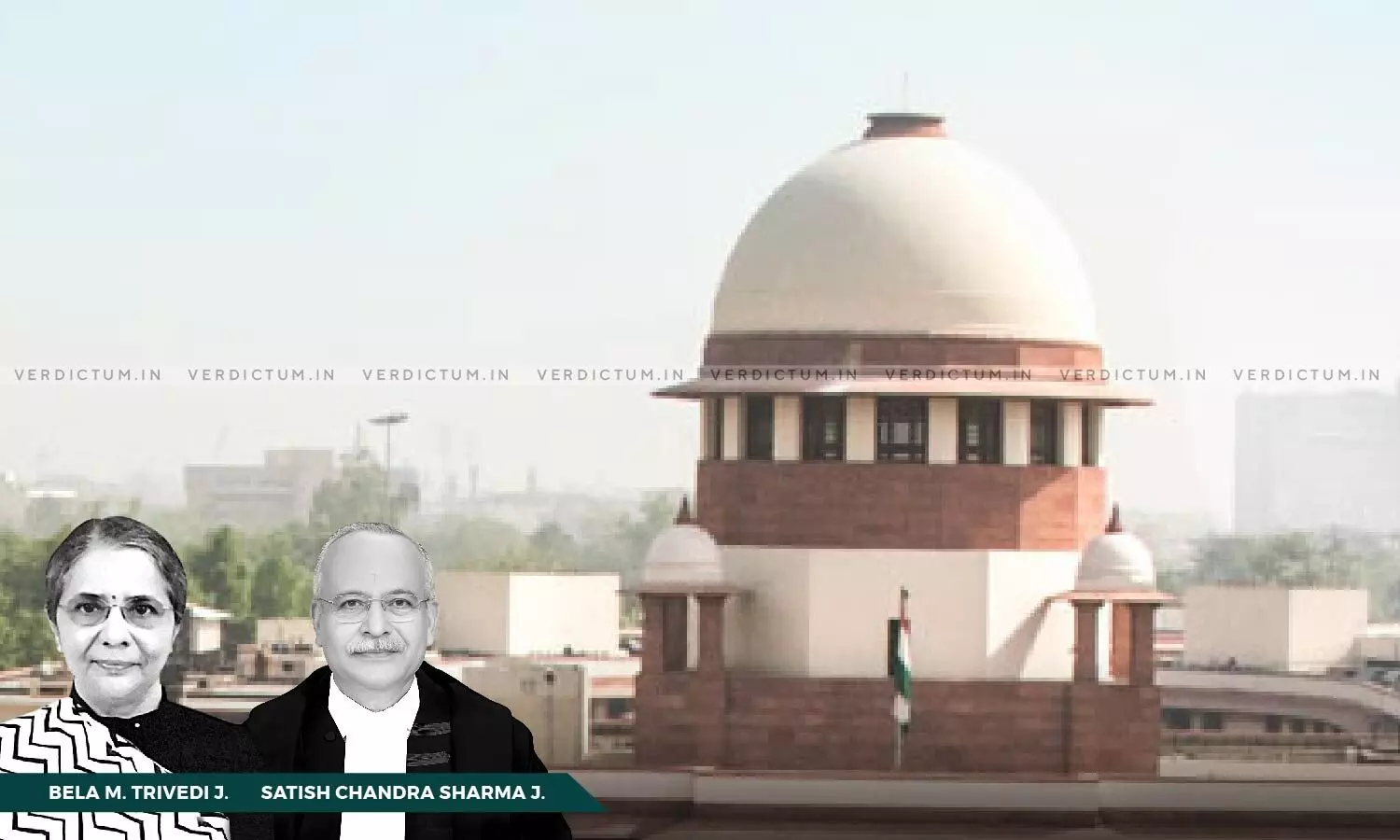
Capping Rate Of Interest Charged By Banks Unwarranted: SC Sets Aside NCDRC’s Judgment Declaring Interest Rates Beyond 30% On Credit Card Default As Unfair Trade Practice
 |
|The Supreme Court has set aside the NCDRC’s Judgment which held that the charging of interest at rates beyond 30% by the banks/non-banking financial institutions, from credit card holders, upon delay or default in payment, constitutes an unfair trade practice.
The Court allowed Appeals filed by various banks, including the Hongkong and Shanghai Banking Corporation (HSBC/Appellant), challenging the National Consumer Disputes Redressal Commission’s (NCDRC) Order wherein it was held that charging interest with monthly rests was also an unfair trade practice. The Bench held that an endeavour to cap the rate of interest charged by banks was unwarranted.
The Bench of Justice Bela M. Trivedi and Justice Satish Chandra Sharma held that “an endeavour to cap the rate of interest charged by banks and dictating the need for a Benchmark Prime Lending Rate, drawing parallels with other economies across the world, whilst failing to trust the prudence of the Reserve Bank of India which has been entrusted with the fundamental responsibility of regulation of the monetary system and banking business is unwarranted.”
Senior Advocates Abhishek Manu Singhvi and Dhruv Mehta appeared for the Parties.
The original complaint was filed by Awaz (Respondent), a voluntary consumer association, alleging unfair trade practices by banks concerning exorbitant interest rates on credit card dues. The complaint claimed that these rates, ranging between 36% and 49% per annum, violated the directives of the Reserve Bank of India (RBI).
The Banks contended that determining the reasonability and ‘fixing of the maximum or the minimum rates of interest’, was the exclusive function of the RBI, a statutory authority responsible for the regulation of the Indian Banking system.
The Banks also assailed the observations of the NCDRC in light of the statutory bar under Sections 21A & 35A of the Banking Regulation Act, which expressly bars Courts/Tribunals from re-opening transactions between banks, on the question of whether the rates of interest are excessive and empowers the Reserve Bank of India, to formulate directions, as befitting the public interest, proper management and banking policies of the country.
The Supreme Court held that “the administrative policy decisions of banks, do not constitute provisions/facilities of banking, which may come under the umbrella of ‘service’, defined under section 2(1)(o) of the Consumer Protection Act, 1986. A policy decision pertaining to the rate of interest, and trade practices carried out by the banks across the country, is a regulatory function within the specific statutory domain of the Reserve Bank of India and cannot come under the purview of judicial scrutiny by the National Commission.”
The Bench held that the decision of the NCDRC to unilaterally hold that any interest above 30% p.a. is usurious, was in contrary to the legislative intent of Section 21A and an “encroachment” upon the domain of the RBI.
“The National Commission had no jurisdiction to either entertain a Complaint, having vague, ambiguous allegations & no cause of action, and further also had no jurisdiction to assume the jurisdiction of the Reserve Bank of India, or act/decide or regulate on its behest, any monetary decision or policy,” it remarked.
Consequently, the Court held, “We are of the considered opinion that once the terms of the credit card operations were known to the complainants and disclosed by the banking institutions before the issuance of the credit cards, the National Commission could not have scrutinized the terms or conditions, including the rate of interest. More-so, the Respondent has not approached the statutory authority, the Reserve Bank of India, for any objection against the rate of interest, or the high Benchmark Prime Lending Rate.”
Accordingly, the Supreme Court allowed the Appeals.
Cause Title: Hongkong And Shanghai Banking Corp. Ltd. v. Awaz & Ors. (Neutral Citation: 2024 INSC 1044)
Appearance:
Senior Advocates Abhishek Manu Singhvi and Dhruv Mehta; Advocates Kishan Rawat, Ateev Mathur, Hitesh Kumar Sharma, Kuldeep S. Parihar, Aman Raj Gandhi, Partha Sarthy Bose, Lakshay Kumar, Kishan Rawat et al; AOR Shankar Divate, Rajan Narain, Chanchal Kumar Ganguli, Gagan Gupta, Ananta Prasad Mishra, Bindi Girish Dave, Shiel Sethi, Shankar Divate, Manish K. Bishnoi, H. S. Parihar, Bina Gupta, S. S. Shroff, et al